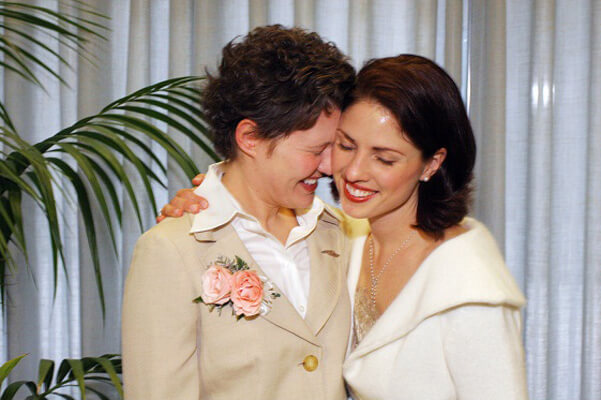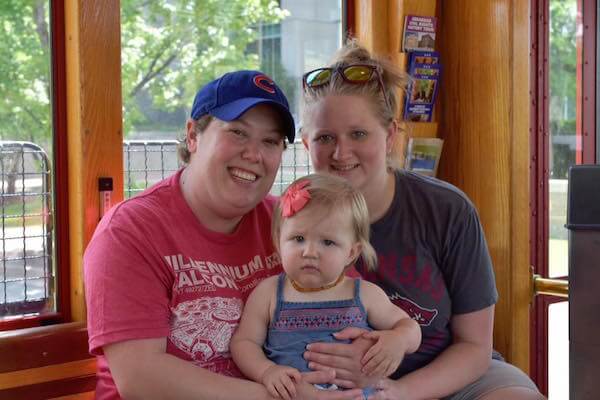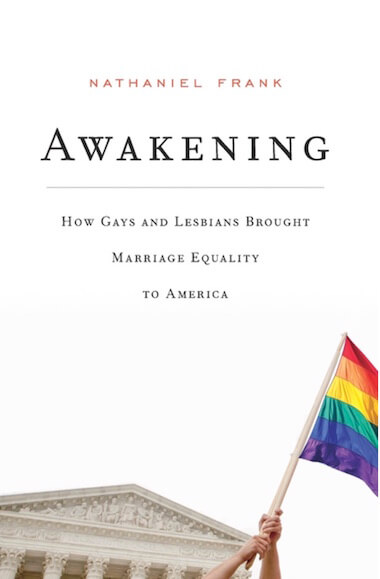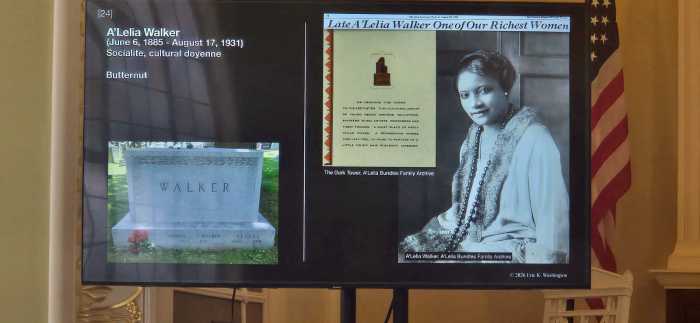Sarah Ellyn Farley and Jennifer J. Tobits on their wedding day in 2006. | COURTESY: JENNIFER TOBITS/ NATIONAL CENTER FOR LESBIAN RIGHTS
BY ARTHUR S. LEONARD | A US district court has ruled that a private sector employee benefit plan governed by the federal Employee Retirement Income Security Act (ERISA) should be construed to recognize a same-sex marriage when the couple reside in a state that recognizes the validity of their marriage.
Significantly, the ruling — which comes in the wake of the Supreme Court striking down the Defense of Marriage Act’s (DOMA) ban on federal recognition of same-sex marriages — involves a couple who married in Canada but lived in Illinois, which has a civil union statute but not full marriage equality.
The July 29 ruling by Judge C. Darnell Jones of the Eastern District of Pennsylvania means that Jennifer J. Tobits is entitled to a survivor’s benefit under the profit sharing plan maintained by Cozen O’Connor PC, a Philadelphia-based law firm, which had employed her late wife, Sarah Ellyn Farley, in its Chicago office.
Ruling applies to couple residing in Illinois, a civil union state
Farley was diagnosed with cancer shortly after the women married in 2006, and she passed away in September 2010. Shortly after her death, Farley’s parents, who did not approve of her relationship with Tobits, presented Cozen O’Connor with a form dated the day before their daughter’s death, which they said was her designation of them as her beneficiaries under the profit sharing plan for an amount totaling roughly $49,000.
Tobits also submitted a claim for the benefits, based on being Farley’s surviving spouse. Under the Cozen O’Connor plan, if a participant dies prior to retirement, the benefit goes to their surviving spouse unless the spouse approved the participant’s designation of a different beneficiary. Tobits never did that, and she disputed the validity of the form Farley’s parents provided.
Cozen O’Connor, caught in the middle of clashing claims and mindful of DOMA’s then existing definition of “spouse” under federal law, filed a suit in Philadelphia’s US District Court seeking determination of who was entitled to the benefit.
The Farleys relied on DOMA to argue that their daughter died without leaving a legally recognized spouse for a federally regulated survivor benefit. Tobits, represented by the National Center for Lesbian Rights, argued she was the surviving legally-recognized spouse and had never consented to waive her rights in favor of her wife’s parents.
Judge Jones heard pre-trial arguments last year but then put the case on his “suspense calendar” pending the Supreme Court’s ruling on DOMA’s constitutionality. After that decision came down in late June, Jones ruled in Tobits’ favor.
Noting that the court’s ruling in Edie Windsor’s challenge found that DOMA “wrote inequality into the entire United States Code,” Jones found that the “written inequality” extended to ERISA’s definition of spouse, which must now include same-sex spouses in “otherwise valid marriages.”
The issue, then, became whether the Farley-Tobits marriage was an “otherwise valid marriage” for purposes of the Cozen O’Connor Plan, whose terms are defined by their meaning under ERISA. The court fell back on the normal practice of asking whether the parties are in a marriage recognized by the state where they live.
Jones rejected the idea that Pennsylvania law should govern, even though Cozen O’Connor is headquartered there since Tobits was never employed its Philadelphia office. Instead, the issue was settled under Illinois law, where the Farley-Tobits marriage is recognized as a civil union. The issue at the heart of this case, however, was not the meaning of “marriage” but rather the meaning of “spouse,” the term Cozen O’Connor uses in describing the principal beneficiary.
Illinois’ civil union law, Jones noted, provides “persons entering into a civil union with the obligations, responsibilities, protections, and benefits afforded or recognized by the law of Illinois to spouses.”
That proved sufficient for Jones.
“There can be no doubt that Ms. Tobits is Ms. Farley’s ‘surviving Spouse’ under the Cozen O’Connor plan in light of the Supreme Court’s DOMA ruling,” Jones found, noting that Illinois recognized the couple’s Canadian marriage, “albeit under the nominal title of ‘civil union.’”
He concluded, “Post-Windsor, where a state recognizes a party as a ‘Surviving Spouse,’ the federal government must do the same with respect to ERISA benefits — at least pursuant to the express language of the ERISA-qualified Plan at issue here.”
The judge, who was appointed to the federal bench by President George W. Bush, noted that Tobits had obtained an order from the Cook County Circuit Court designating her as Farley’s sole heir as her surviving civil union partner.
It was fortuitous that Farley and Tobits lived in a state that provides legal recognition as spouses to same-sex couple residents who marry elsewhere. This decision doesn’t answer — because it didn’t need to — the looming question of whether the result would have been the same had Farley worked in Cozen O’Connor’s Philadelphia office, since Pennsylvania has a state DOMA amendment and does not afford any recognition to same-sex couples married elsewhere. As a federal statute, ERISA broadly preempts state laws regarding employee benefits plans, but it does look to state law to identify the marital status of employees who are covered. The implications of this ruling, therefore, seem limited, at least for now, to states that recognize “spouses” who are in same-sex marriages and perhaps even civil unions.




































